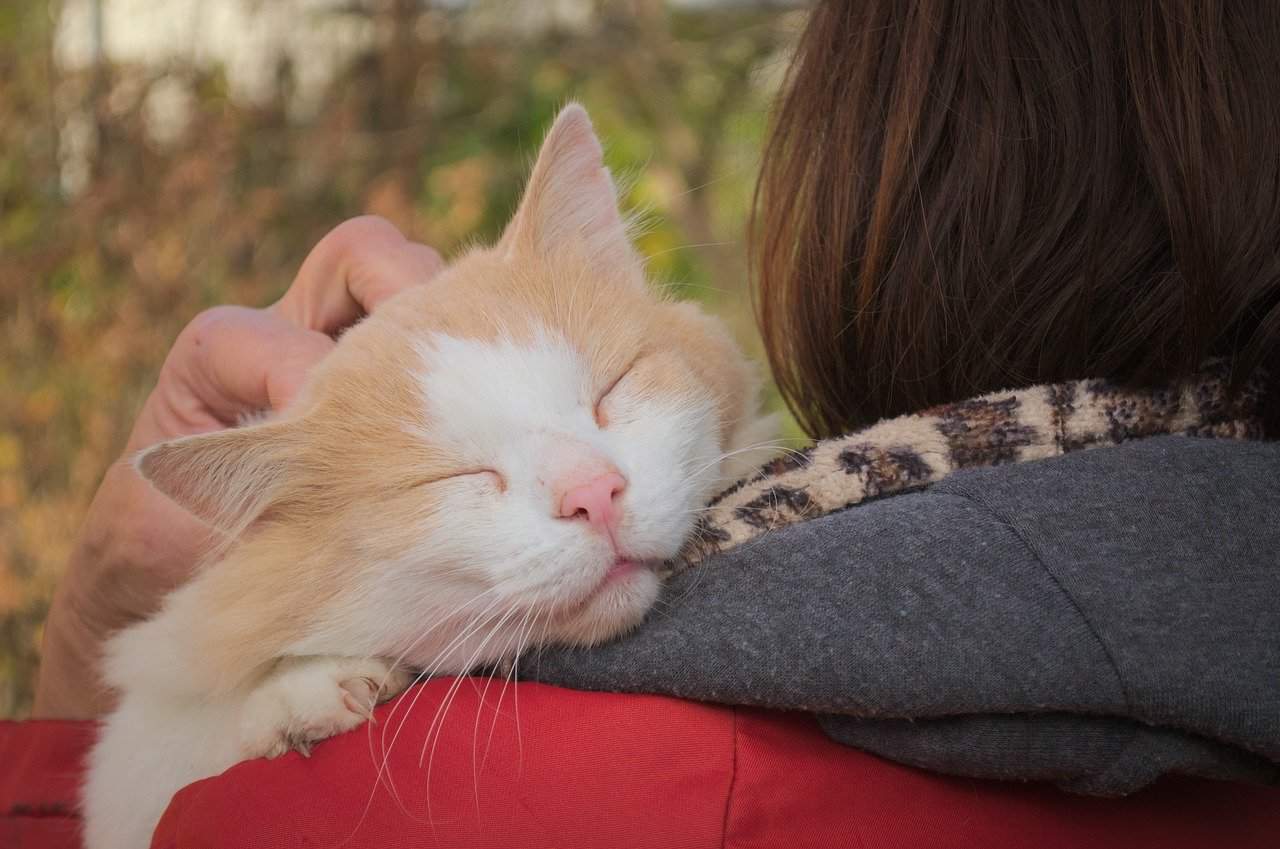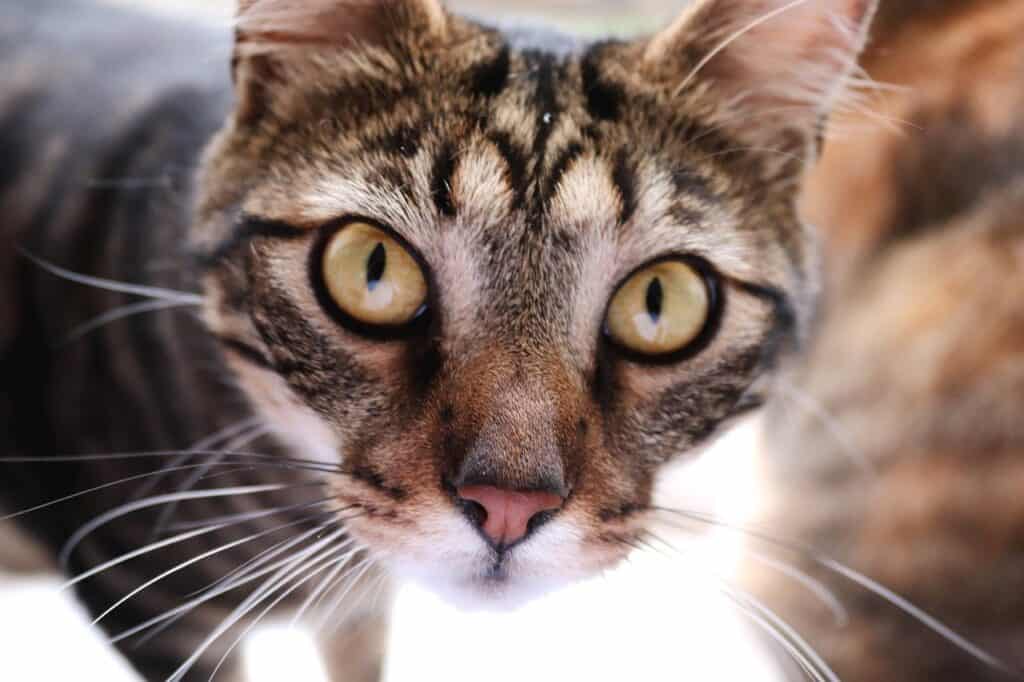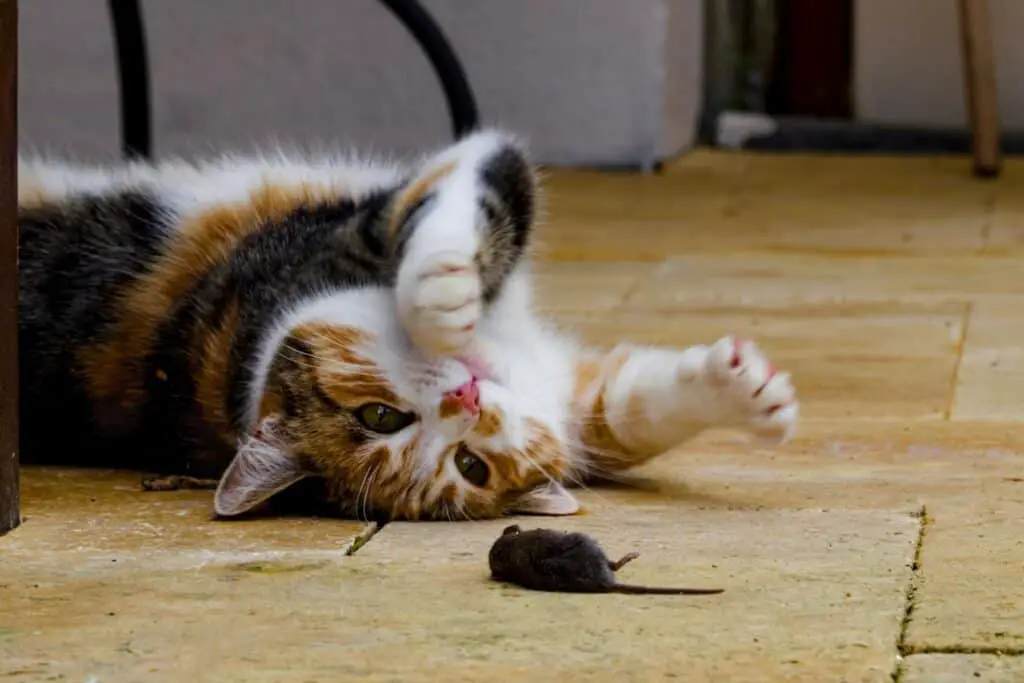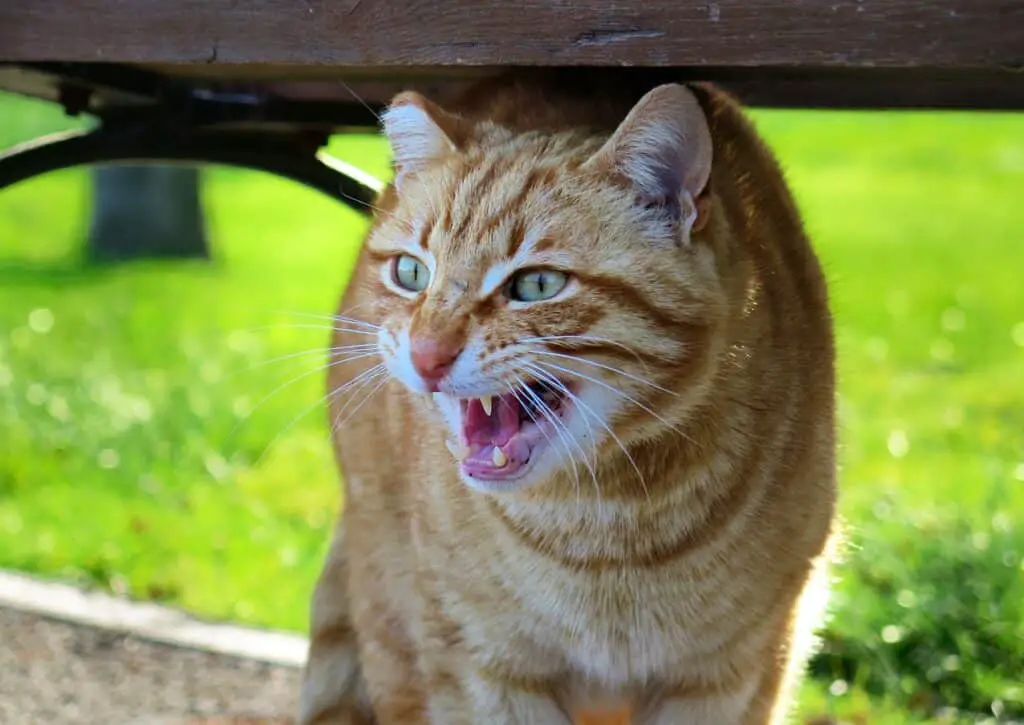While aging, cats can sometimes display different behaviors. After all, it’s normal for kittens to evolve their personality while they grow into adults. Some say that cats get more affectionate as they grow older.
While this may be true for some cats, is this really true or just a myth?
Do cats get more affectionate with age?
A cat’s personality may change as they mature, both physically and mentally. While some cats get more affectionate as they age, this is not true for all cats. There are several aspects to consider when trying to understand changes to your cat’s behavior, such as personality, mental state, breed, environment, and more.
Some cat parents would like their cat to be loving and affectionate, but rather than waiting for them to grow old, it is good to understand what shapes a cat’s behavior as they grow older and what you can do to influence cat behavior.
But is it only age that matters?
Many cat owners told me, anecdotally, that they have experienced their cats getting more affectionate in their older years. However, when discussing it with them, it turns out that their cat’s behavior could be attributed to other factors.
The fact that the cat got older is just a coincidence and not the main driver for a personality change.
Generally speaking, cat behavior does change with age and it could be that some cats get more cuddly as they settle down and mature.
While it’s possible to have very cuddly kittens, younger cats are usually more active and are way too busy to explore and play. This may lead to them making less time to cuddle.
But does that always mean that older cats always want to cuddle more?
Not necessarily. Older cats might become very cuddly, or their signs of affection may be more subtle.
How does age play into it?
As soon as kittens age, they’ll become more relaxed with less energy to play. They will start forming their personalities as they mature, just like human babies.
Some cats won’t become more cuddly as they reach maturity and prefer being alone; others turn out to be more cuddly and dependent on their owners.
Some things influence the forming of character in your cat and promote them growing up more affection towards you.
Besides their development over time, age also comes with physical effects that often cause cats to decrease activity and become less playful.
Your cat’s body will change once they reach a certain age. Due to the deterioration of its muscles, bones, and joints, your cat may not be as active as it once was and, consequently, spend more lap time with you.
When they lose their hearing, cats often become more vocal, so it will seem that they demand more attention.
Sometimes cats become more affectionate due to the cognitive decline of their feline brains. When cats lose sight or hearing ability, they can become confused or disoriented. They might start feeling anxious and become more clingy as a result.
Curious about how long you have to wait until your cat gets more affectionate? Have a look at our post about how old cats get.
At what age do cats get more affectionate?
Based on the gradual maturing of your cat, both physically and mentally, there is no specific age at which cats might become more affectionate.
Some get more clingy after a few years; others may never enjoy being alone.
You can never tell at what point your cat will change and if it will at all.
As a rule of thumb, if your cat grows more affectionate, you will most likely see this happen when they reach two years of age. This is when they enter adulthood, and their personalities will have settled by then.
Once cats settle on their personality, they’ll become more true to themselves. Whether they become more cuddly or not will depend on their nature.
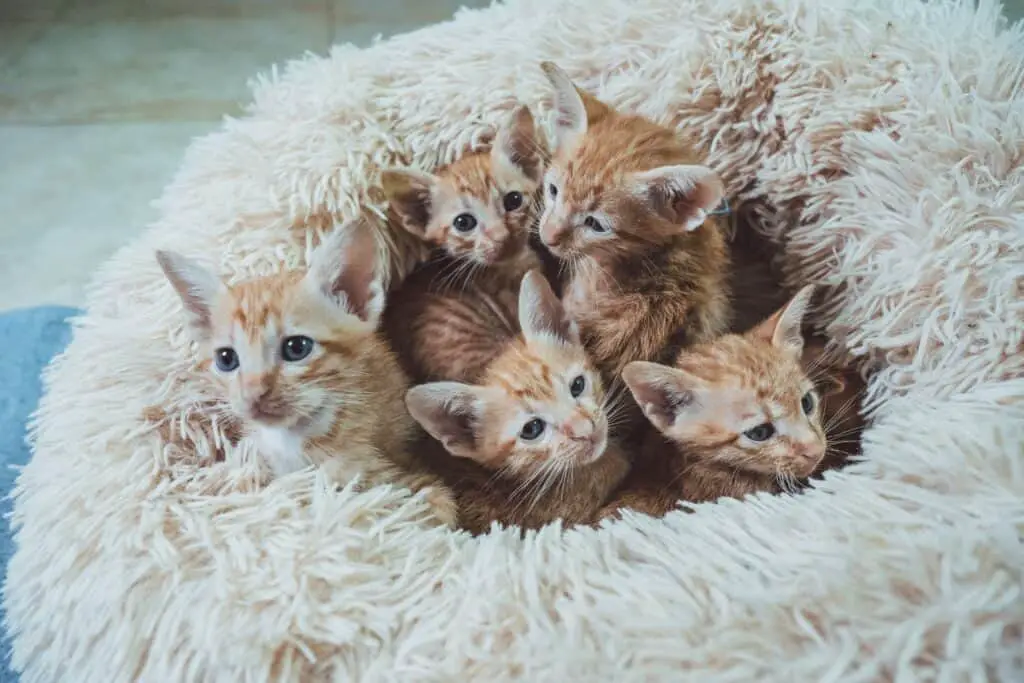
What cat breeds are the most affectionate?
If you’re looking for a cat that’s more prone to be affectionate by nature, your best bet is to choose one that’s already cuddly instead of waiting for them to mature.
The breeds below are among the most affectionate breeds. If you’re the cuddly type, check out those cats.
- Ragdoll: They’re calm, easy-going, and love cuddles.
- Siamese: They’re intelligent, outgoing, and love getting attention by chatting with you.
- Persian: They’re calm, elegant, and love to have quiet company.
- Sphynx: They’re very playful and love meeting new people.
- Burmese: These cats can be energetic, vocal, and affectionate.
- Maine Coon: They can be loyal and very friendly.
- Birman: This breed is docile and loves attention.
All of these cat breeds have the potential to become incredibly affectionate pets under the right conditions. If you neuter them, play with them, and treat them with love and affection, they will reward you with a close and loving bond.
You could also pay attention to the cat’s personality when choosing one. Take your time to evaluate which kitten you should get instead of going with a cute face.
One good sign that a cat likes you is when they take the initiative and come to you.
On the other hand, don’t forget that different cats are like humans. We all show love and affection in different ways.
Some cats won’t sit on your lap all day but will show their affection in other ways.
Why isn’t my cat affectionate?
If your cat isn’t affectionate or not as affectionate as you would like, it could have a couple of causes.
First of all, it’s important to distinguish whether your cat’s personality just isn’t as affectionate or if their behavior has changed over time.
So, the question to ask yourself is, was my cat more affectionate in the past, or was my cat never really affectionate?
If it’s the latter, your cat was never really affectionate, to begin with. It could just be that your cat isn’t really interested in being cuddly. This can be because of upbringing, personality, or even related to their breed.
Although there are things you could try to make your cat more affectionate, if it’s just their character, there is probably little hope for success, especially if it’s already an adult cat.
In case your cat used to be cuddly, but this has gotten less over time, there are a couple of things to consider.
- Your cat could be sick; cats that don’t feel well tend to shy away and avoid socializing.
- Something significant changed in your cat’s life or environment that it has trouble dealing with (e.g. a new baby, a new pet, a move, redecorated living space, etc).
- The cat needs to get used to something that changed in its or your daily routine.
In those situations, try to help your cat to get to recover. Give it extra attention or consult a vet. Chances are that your cat’s cuddly’ness will return back to normal after a while.
How To Make Your Cat More Cuddly?
As I mentioned before, while your cat is growing up, there are several things you can do to help your cat become affectionate.
How to do that?
Well, it’s not that different from raising human babies, and it shouldn’t be a surprise that the love you give them will return to you as feline affection.
It’s about making time for your cat, showing that you care for them, and being there when they need you. Be consistent about it but don’t be pushy, as that may cause your cat to run from you than towards you.
1. Be gentle and affectionate
You get what you give, and in the case of cats, how you treat them matters.
Cats have a good memory, and although they don’t really hold grudges, they do remember who treats them well.
The most important thing you can do if you want an affectionate kitty is to show them you care. Spend time with them and tend to their needs.
Here are some tips on how to raise an affectionate kitty:
- Play with your cat often, at least 30-40 minutes per day.
- Use a soft voice when talking to your cat; use positive reinforcement rather than punishment.
- Groom your cat often and make sure they live in a clean house.
- If you have a litterbox, clean it regularly.
- Provide them with a safe, warm, and cozy place to retreat and sleep.
- Feed your cat on time, and bring variation to their daily menu.
- Cuddle them now and then but don’t overdo it. Let them set the pace.
2. Help them socialize
Introducing your cat to your friends or other pets is a great idea. Slowly, please don’t force it. If you encourage young cats to play with other people, you’ll make them much more social and affectionate.
3. Keep your cat healthy
Cats that feel good enjoy being social and interacting with other pets and humans. Granted, some cats socialize more than others but keeping your cat healthy will definitely help.
Healthy cats will hide less and have an increased curiosity and will to explore.
So, take your cat to the vet for its regular checkups and consult them when your cat’s behavior changes suddenly. It could be a sign of sickness.
Even if your cat hates going to the vet, they understand that you are taking care of them. A healthy diet and regular grooming are also necessary to keep your cat healthy and happy.
Do male cats become more affectionate after being neutered?
Whether your cat is male or female, it can become more affectionate with age. Contrary to popular belief, the sex of your cat won’t play a significant role in how affectionate cats turn out to be. Personality and breed are what truly determine this trait.
But what about neutering? Does that make them more affectionate? According to anecdotal evidence from cat owners, most male cats that have been neutered become more affectionate after the procedure.
According to The Nest, cats become more clingy (in a good way) and more drawn toward their owners after neutering.
This is because neutered cats are far less territorial, reducing their restlessness and aggression. Because of this, owners often see a positive change after neutering their male cats.
However, keep in mind that neutering your cat doesn’t mean that they will become a cuddly ball of love directly after the procedure. Cat love is a process that takes time.
Tricks that cats use to get more attention
When old cats reach a certain age, they might use tricks to get your attention.
Some forms of attention-seeking are:
- Rubbing themselves onto you.
- Loud vocalizations.
- Your cat can sit on your laptop/keyboard/book to get your attention.
- It may throw small objects off.
- Your cat might wake you up in the middle of the night.
- Urinating outside the litterbox.
- Destroying furniture with their claws.
All these actions show that your cat is trying their best to get your attention. If this happens, you know that you’ve been neglecting your cat.
However, remember that some of these actions might not be desirable, and you shouldn’t reward your cat by playing with them directly.
Make it clear that you don’t appreciate this behavior and play with them at another time when she’s behaving, or you might just be reinforcing this behavior.
Take some time to play with your cat, and it will learn to expect playtime and how to get positive attention rather than their questionable behavior.
Be aware that some attention tactics, like urinating in odd places, can signify that your cat is sick or in pain. It’s better to be safe than sorry so take a trip to the vet to ensure she’s healthy.
What if your cat suddenly becomes more clingy?
Sometimes, your cat may exhibit a sudden change in personality and behavior. This is seldom a good sign, even if they become more clingy than before.
A cat that displays sudden affection to the point where you’d call it “clingy” (in a negative way), and where that wasn’t the case before, is usually a sign that something is wrong and your cat is trying to get your attention.
A clingy cat could be suffering from anxiety, illness, or feeling insecure. There’s a distinction between a cat being affectionate and clingy. Here are some signs of clingy cats:
- Anxious and erratic behavior.
- Fear of being alone and being abandoned.
- They follow you around your house.
- Constantly rubbing themselves onto you.
- Your cat cries or hisses when you leave them alone.
It’s good to monitor your cat’s behavior, and if you see a sudden personality change, you should consult your vet for a checkup.
Of course, many cats are naturally clingy, so there is probably nothing to worry about. Only if there’s a sudden shift in behavior may be a reason for concern.

